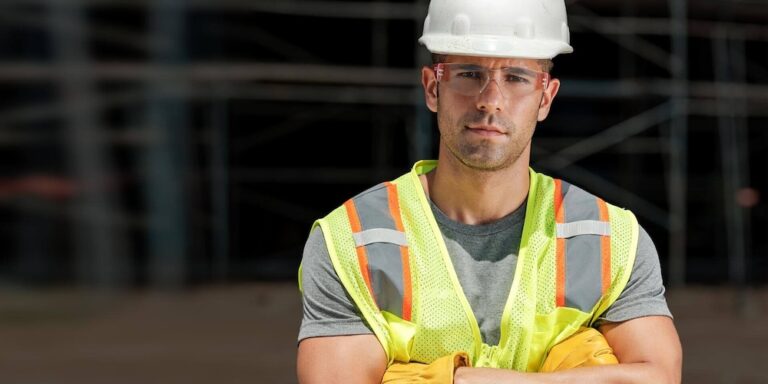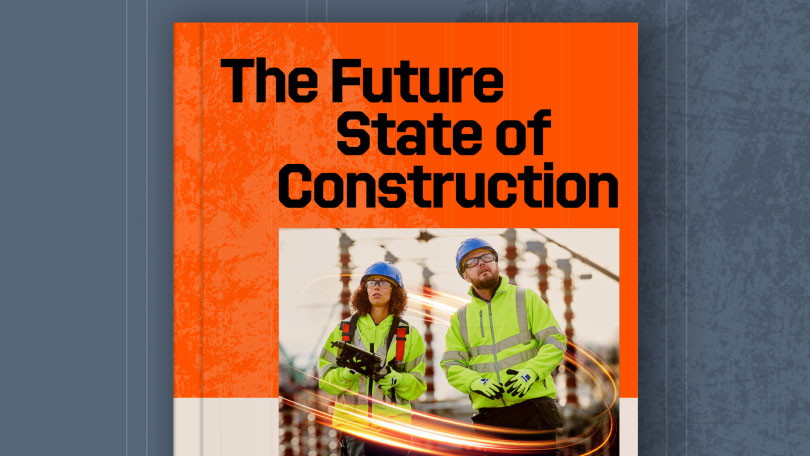— 6 min read
What Does a Construction Manager Do?

Last Updated Jul 25, 2025

Tom Noctor
Senior Product Manager, International
16 articles
Having worked in construction for many years both on the ground as an electrician and in the design space in roles such as BIM Manager, I witnessed the highly inefficient operations of our industry and also the amount of waste generated from project delivery. I am a Digital Construction Technologies advocate @Procore Technologies, supporting and guiding the construction industry in adopting/utilising technology to deliver projects in a lean sustainable manner.
Last Updated Jul 25, 2025

Whether you’re just starting out in the industry or you’re an open-minded expert who wants to know how the role has changed and will continue to do so in this new decade, this definitive guide provides an overview of the question: What does a Construction Manager do?
Table of contents
Construction Management Basics
Construction management is a specialised field of project management that involves supervision and coordination of construction activities to ensure successful project delivery. The term can also refer to a field of study: Many universities offer degree programs in construction management.
The ultimate goal of construction management is to minimise risk by controlling a project's programme, budget (cost), and quality.
Role of a Construction Manager
The role of a Construction Manager has evolved significantly, especially as new technologies and project delivery methods shape the way we build. From early planning to final completion, a CM is the central figure responsible for coordinating teams, controlling budgets, and ensuring quality and safety standards - ultimately bridging every phase of the construction process.
Project Planning & Management
- Project Initiation: Involves feasibility studies, site selection, and defining the project scope to ensure a solid foundation for progress.
- Scheduling: Development and management of project timelines to ensure tasks are completed promptly.
- Budgeting: Creating and monitoring budgets to keep project costs within allocated limits.
- Resource Allocation: Efficiently distributing personnel, materials, and equipment to optimise project execution.
- Risk Management: Identifying, assessing, and developing strategies to mitigate potential risks.
- Quality Control: Implementing measures to ensure projects meet required standards.
- Safety Management: Ensuring construction sites comply with safety regulations to protect workers and visitors.
On-Site Supervision & Coordination
- Contract Administration: Managing contracts with subcontractors and suppliers, ensuring obligations are met.
- Staff Management: Hiring, training, and supervising construction workers and subcontractors.
- Trade Coordination: Ensuring efficient workflow among different trades and subcontractors.
- Progress Monitoring: Tracking project progress and identifying any potential delays.
- Problem-Solving: Addressing on-site challenges as they arise.
- Communication: Keeping clients, architects, engineers, and other stakeholders informed of progress and any issues.
Key Skills for Construction Managers
- Leadership: Ability to lead and motivate teams to achieve project goals.
- Communication: Effective verbal and written communication with all stakeholders.
- Problem-Solving: Quick and efficient identification and resolution of issues.
- Organizational Skills: Managing multiple tasks and projects simultaneously.
- Technical Skills: Understanding construction methods and techniques.
- Budgeting & Financial Management: Managing budgets effectively to control costs.
- Safety Knowledge: Familiarity with construction safety regulations and procedures.
Construction Manager Job Outlook
- Average Base Salary: £53,651 (source)
- Education Requirements: B.A. in Construction Management, Construction Science or related field
- Entry-Level Work Experience Needed: Depends on education level
- Soft Skills: Leadership, collaboration, customer-service, decision-making, public speaking, time management, writing, budgeting, technology and innovation
Construction Project Hierarchy
To fully understand how construction managers ensure successful projects, let’s put it within the context of the four various project stakeholders in the construction job title hierarchy.
- Owner-Developer: An individual or business entity who commissions and funds a project. Owners come from many different industries - real estate, development, healthcare, education and more. Many don’t have dedicated construction oversight teams and choose to contract out the work to a certified construction manager.
- Construction Manager: The person or team hired by the owner to provide oversight of the entire project’s delivery - from planning and preconstruction through construction and turnover.
- Architect and/or Engineer: The person or firm hired by an owner to manage project design and technical coordination between engineering disciplines.
- Main Contractor: The team hired by an owner to oversee day-to-day construction operations and subcontractor productivity during construction.
Learn about the future of the built environment - Read Procore's Future State of Construction report
Learn how contractors, subcontractors, and project teams can take advantage of new opportunities to boost efficiency and profitability over the next decade. Download the report to get your roadmap to the future state of construction.

Construction Management During Each Project Phase
A construction manager is active throughout the entire lifecycle of a project. During each phase, they play an important role in successful project completion.
1. Planning
You get what you plan for. Measure twice, cut once. A stitch in time saves nine.
Whichever phrase you prefer - the main lesson here is that carefully coordinated pre-planning is the first major phase of risk mitigation. During this phase, the owner defines:
- Why there is a need for a building
- What their goals and success metrics will be
- How the needs and goals will impact the design
- Scopes for budget and timeline
Simultaneously, the construction manager works with the architects, engineers and other hired consultants to agree on the feasibility of those goals and do their best to plan ahead for potential construction setbacks.
The construction manager will also research which procurement method is most appropriate considering the task at hand. Just because design-tender-build is the most common route for modern construction projects, it does not mean it is the best.
At best, design-tender-build can provide owners with a fixed price contract to start with. But unless it is a traditional project with few unknowns, it is likely the price will change. This can damage relationships and lead to cut corners from contractors.
The greater the risks at the beginning, the more important it is to plan correctly around the right delivery method to avoid additional costs. Nevertheless, the greater the risks at the beginning, the greater the chance for additional costs.
2. Preconstruction
During preconstruction early plans are submitted for building permits and main contractor tenders. This could include construction management contracts, drawings and specifications.
Meanwhile, the construction manager is in charge of hiring all construction teams and utilising risk management best practices to ensure that issues are resolved prior to the start of construction. Proper risk management minimises the amount variations and delays down the road.
3. Construction
Planning is done. The main contractor breaks ground. Execution begins.
During construction, the construction manager oversees:
- Site investigations
- Monitoring main contractor safety programmes
- Monitoring insurance
- Answering RFIs
- Reviewing and approving technical submittals
- Coordinating permits
- Managing the budget
- Scheduling timely payment for work completed
- Ensuring the project is delivered as designed
All of this keeps the project moving smoothly while keeping stakeholders informed and satisfied.
4. Close Out
Snag lists are completed. Keys and as-builts are handed over to the owner.
Management of the building is officially “turned over” from the construction manager and main contractor to the owner. The owners must be provided with all project information and close out documents such as manuals, warranties, as-builts and closed out ledgers. Insurance must also be changed from the course of construction to permanent property insurance. And in some cases, the owner is trained on how to use and manage their facility.
Qualifications and Career Path
To become a construction manager, a Bachelor's degree in Construction Management, Construction Science, or a related field is typically required. Relevant work experience and certifications can enhance career prospects. Becoming a construction manager involves dedication and a commitment to continuous learning.
Day-to-Day and Career Aspects
A typical day for a construction manager involves overseeing site operations, coordinating with various stakeholders, and ensuring project milestones are met. This dynamic role requires adaptability and problem-solving skills.
Construction Manager vs. Project Manager
While both roles are crucial in construction projects, a construction manager focuses more on on-site supervision and coordination, whereas a project manager handles broader project planning and management tasks.
Categories:
Written by

Tom Noctor
Senior Product Manager, International | Procore Technologies
16 articles
Having worked in construction for many years both on the ground as an electrician and in the design space in roles such as BIM Manager, I witnessed the highly inefficient operations of our industry and also the amount of waste generated from project delivery. I am a Digital Construction Technologies advocate @Procore Technologies, supporting and guiding the construction industry in adopting/utilising technology to deliver projects in a lean sustainable manner.
View profileExplore more helpful resources

Integrated Compliance: A Main Contractor’s Guide to ISO 9001, 14001, 45001, and 44001
For UK main contractors, ISO 9001, 14001, and 45001 are fundamental prerequisites to any tendering activity. The Building Safety Act, Net Zero targets, and tight margins mean these certifications are...

The Main Contractor’s Action Plan for Commercial Risk
For UK main contractors, managing risk protects project margins, rather than solely acting as a compliance exercise. Construction is an industry defined by thin profits and high liability, and a...

Construction Action Plans: Minimising Risk & Maximising Delivery
A construction project is a complex set of tasks, resources, and stakeholders. Without a clear, documented path forward, even meticulous planning can lead to delays, cost overruns, and disputes. The...

Construction Drawings: Guide to Types & Regulations
While architects, urban planners and landscape designers first conceive buildings and public realms in their minds, translating vision into detailed drawings remains the foundation for any project. Construction drawings translate...
